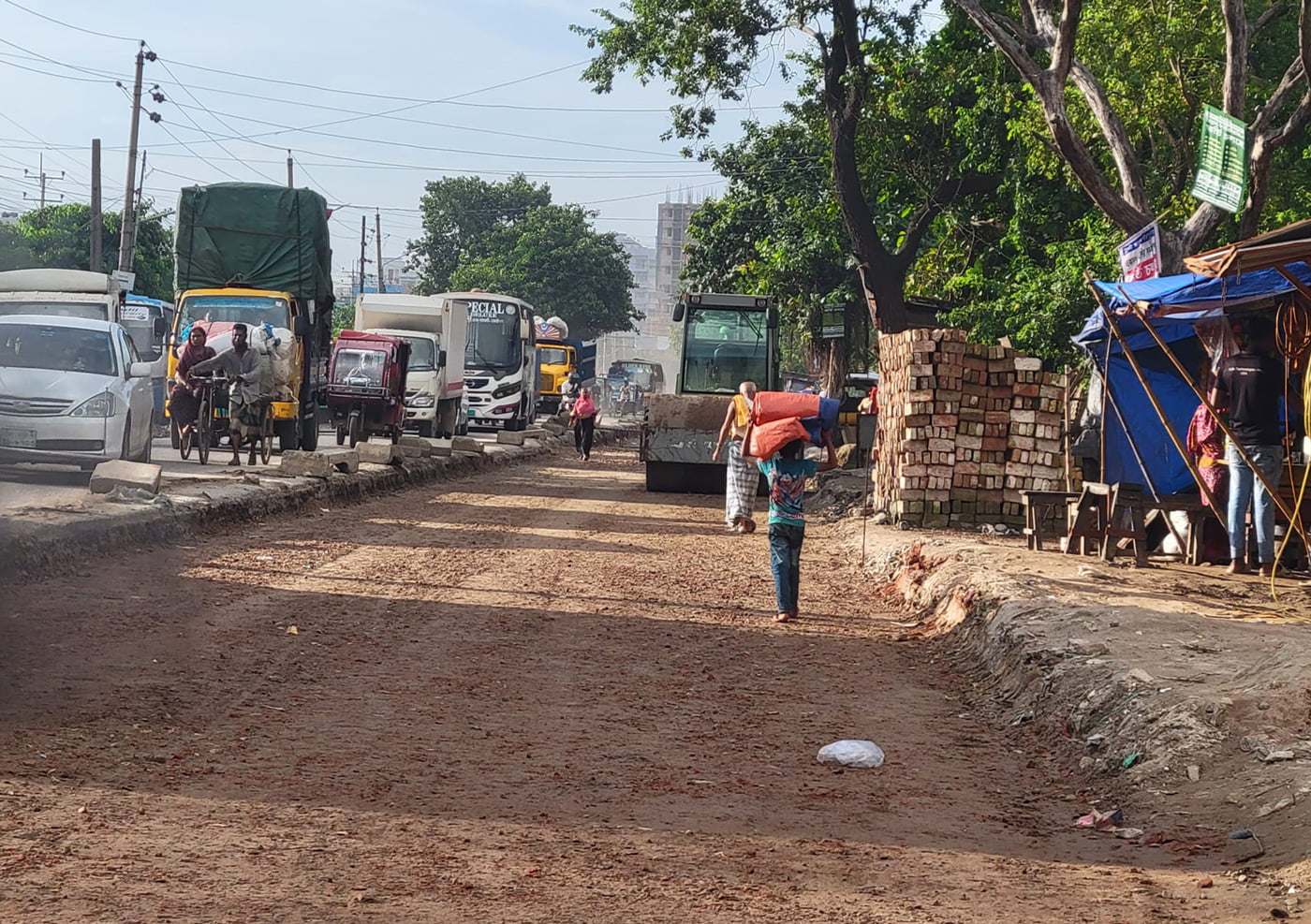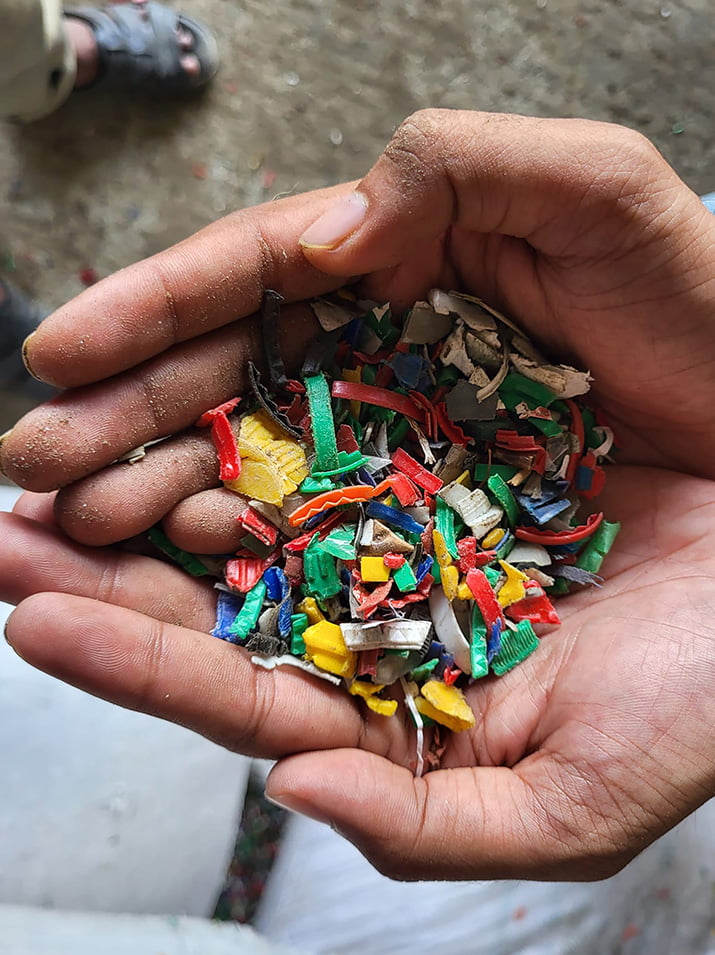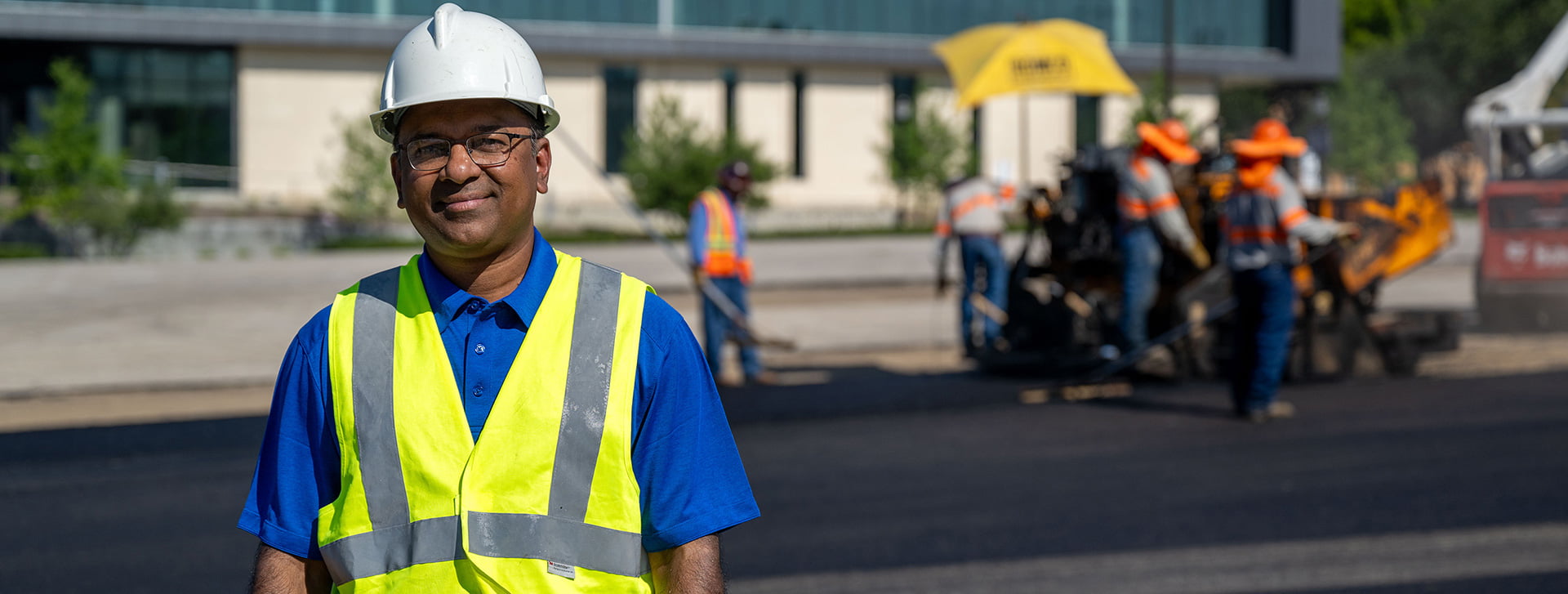University Administration Building
701 S. Nedderman Drive, Ste 421
Arlington, TX 76019-0116
Paving It Forward
Growing up in a low-income neighborhood in Bangladesh, Sahadat Hossain always saw people around him getting sick. He didn’t know why.
What made matters worse was that he saw his neighbors and those close to him having to choose between buying medicine or buying that night’s dinner. As a child, he didn’t know exactly why this was happening, either, but he made two observations: Those who got sick lived next to a dumpsite, and those who got less sick lived further away from it.
That’s why Dr. Hossain, a civil engineering professor and director of the UTA Solid Waste Institute for Sustainability (SWIS), has dedicated his career to finding a way to help his community.
“Seeing my people get sick bothered me, so I spent my career asking if there was a solution,” he says. “It’s been a long journey, but it’s one I am most proud of. Everything I do and have done is around sustainability and how we can improve people’s lives, especially those with less means than others.”
Today, Hossain is a world-renowned expert in sustainable waste management. In more recent years, he has driven innovation to new heights with his invention of an innovative technology that uses plastic-infused asphalt to repair and lay down new roads. You can find these roads right here on campus—on parking lots F10 and Lot 49 with potentially more soon to come—and as far away as his home country.
S. M. Ashik Al Aziz, one of Hossain’s graduate teaching assistants, has worked with him through various road projects and described him as “a man with impact,” saying it’s been a privilege to work alongside someone so dedicated.
“When he puts his mind to something, he gets it done, and we’re lucky that his mind is set on improving not only roads but people’s livelihoods,” Aziz says.

A Plastic Problem
For decades, nations around the world would send their plastic waste to China, which would recycle the plastic to use as raw materials for processing and manufacturing. But as years went by, that plastic started to pile up, and in 2018, China stopped accepting plastic, creating a problem for nations around the world that relied on this system for their own waste management.
That’s where Hossain saw a void that needed to be filled.
“We are taking one problem, which is plastic pollution, and we’re using it to fix another problem: deteriorating roads,” Hossain says. “This is the perfect example of sustainable engineering solutions.”
Plastic pollution has been a major challenge in his home country as well. Plastic isn’t biodegradable, causing buildups in the environment, which can harm marine life, soil, and groundwater and can also have serious health impacts on humans.
This is magnified in countries like Bangladesh, where there isn’t a robust waste management infrastructure in place like in the U.S., Hossain says.
But even with stronger waste management, plastic waste in the U.S. has increased yearly since the 1960s, with the greatest increases occurring between 1980 and 2000, according to the Environmental Protection Agency. In 2018, landfills received 27 million tons of plastic nationwide, accounting for 18.5% of all landfilled municipal solid waste.
Hossain says there are many strategies to help eliminate plastic waste, such as people doing their best to recycle and limit the amount of plastic products they use. The other way—his way—is to make the plastic useful.
To that end, the professor also created the University’s Solid Waste Institute for Sustainability in 2015 with its mission being to work on developing clean and healthy urban cities through sustainable waste management. As part of SWIS, Hossain has traveled across the country giving presentations on how to better manage waste, especially in lower-income cities.
“We are trying to find solutions that can be used here in the U.S. and in countries around the world that may have fewer resources, and we’ve found that with the plastic roads,” he says.

What’s in the Mix?
As a civil engineer, Hossain is very familiar with roads. He’s worked with them and knows what goes into making asphalt.
That’s why he knew bitumen, one of the core ingredients of asphalt, would mix well with plastic waste pieces. Hossain says they have found that plastic-infused asphalt is stronger than the regular mix.
“Under extreme heat, bitumen can melt, but we found adding plastic to the mix raises the heat resistance of the road,” he says.
Interestingly enough, Hossain almost found out about the mix’s heat resistance by accident. They did not know how resistant it was until it was laid in Bangladesh, one of the hottest countries in the world.
But it wasn’t easy to find what plastics worked with the bitumen, Hossain says. This is because there are so many different grades of plastic—in the hundreds. Each of these different types of plastic serves different purposes, like those that are safe for food storage and others that are made for cleaning supplies.
After finding the right plastics, it was a matter of vigorous testing. They had to prove this plastic road could bear the weight expected of a regular road, which is at least a ton. Initially, Hossain and Warda Ashraf, another civil engineering professor at UTA, received a grant from the Texas Department of Transportation (TxDOT) to test the feasibility of these plastic roads.
This is where Hossain was able to put his technology to the test in a lab. But testing it with real cars and weather conditions would be the next hurdle.
Implementation and the Future
After thorough lab testing, Hossain knew that for his project to be implemented, he needed to test it out with cars. He had worked previously with TxDOT to fill cracks with the plastic-infused asphalt, but it needed to be a larger fill to make a conclusive statement.
That’s when Greg Hladik, executive director of Auxiliary Services, saw an opportunity. Hladik oversees the Parking and Transportation Services team and usually takes the summer to repair the various parking lots around campus. It costs quite a bit to do these repairs, but after being told that the plastic-infused asphalt doesn’t crack as easily, he and Hossain teamed up.
When renovating parking lots F10 and Lot 49 last summer, his team mostly used regular asphalt, but dedicated a section on each that uses Hossain’s roads.
It wasn’t easy—there were hiccups along the way, such as how and where the plastic-infused asphalt was going to be mixed, as it can’t be done at the same time as regular asphalt. The asphalt company had to shut down its regular operation just to create the plastic mix, Hladik says.
“If there is a way to create something that allows us to have greater longevity for our lots and also work with faculty, it’s a win-win situation,” Hladik says. “It took a lot of great partners who were willing to take a chance.”

Hladik says it’s too early to tell if the plastic road will hold up better than regular asphalt, but the research tells him it should. He hopes it does, as it could save students, faculty, and staff money.
“Through the integration of recycled plastics into our infrastructure, we’re not just repairing parking lots; we’re laying down a foundation for a more sustainable future,” he says. “Small changes on our campus are sparking opportunities that have a global ripple effect, helping solve critical sustainability issues while simultaneously enhancing our students’ day-to-day experience.”
The partnership didn’t just pay off on the lots. Hossain, Hladik, and the parking team were recently rewarded for their efforts by the International Parking & Mobility Institute (IPMI), the world’s largest association of professionals in parking, mobility, and transportation.
Hossain received the IPMI Apex Award for Innovation for his pioneering research and application of plastic-infused asphalt, which marked a significant innovation in sustainable infrastructure. Hladik received two awards: the IPMI Professional Excellence Award for Innovation and the National Association of College Auxiliary Services’ Lifetime Achievement Award. The University’s Parking and Transportation team was awarded the IPMI Organization of the Year.
While Hossain continues his work in the Dallas-Fort Worth Metroplex, he sees results halfway across the world: Bangladesh.
Plastic-infused asphalt was laid on the road in Dhaka, Bangladesh, last year. This is one project that Hossain is most proud of, as it is a road that cars use daily. He says the road in Bangladesh also provided results that bode well for future roads in Texas.
“I can’t explain what I’m feeling,” Hossain says when asked about helping his people back home. “Hopefully, I can continue to make a difference.” 


